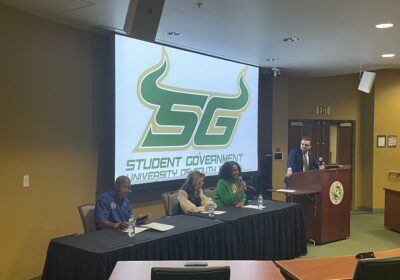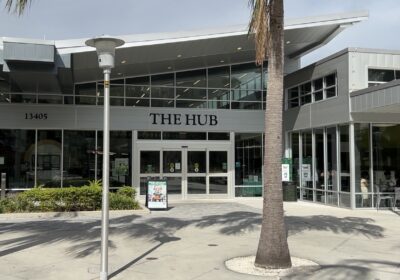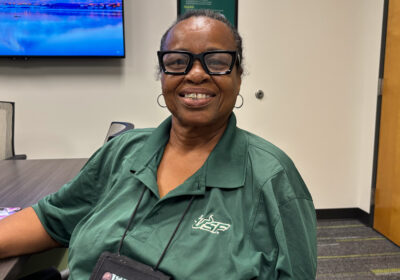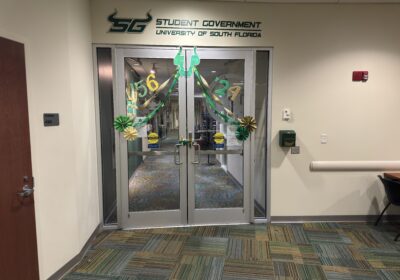USF health experts wary of return to campus during new wave
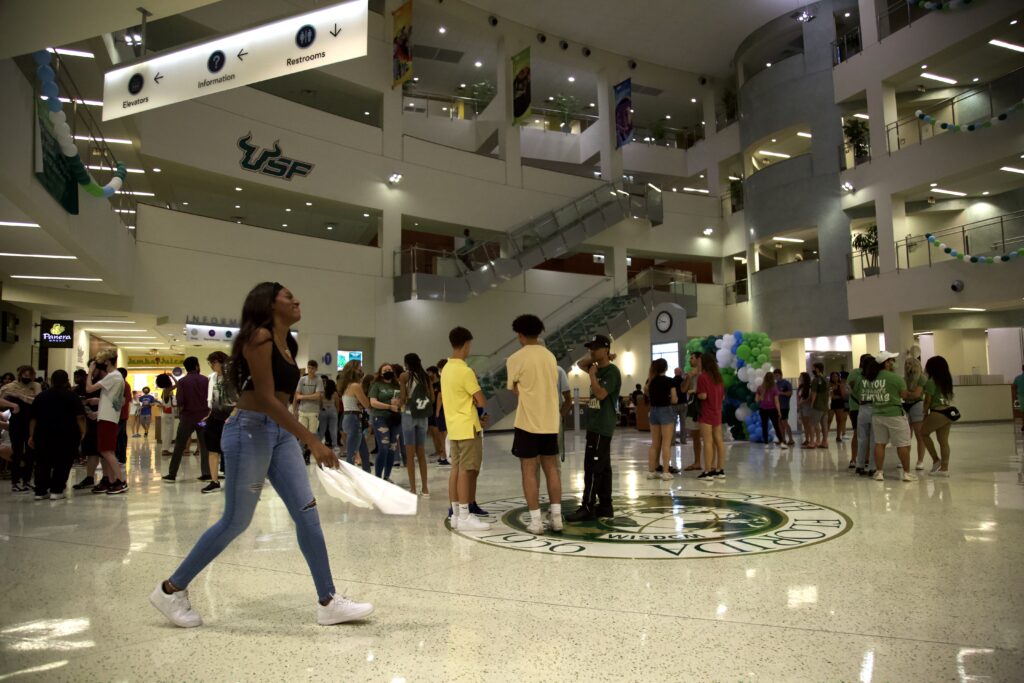
USF Health experts predict the peak of COVID-19 cases caused by the delta variant is approaching, however, despite the inevitable downward slope that will follow, some believe the impact will be bigger than previous waves.
From his research, Edwin Michael, an epidemiologist at USF Health has predicted Florida will reach its peak in cases by the end of August, but as more people get vaccinated, the cases will begin to drop by mid October.
“There will be a peak around Aug. 31, but then it will begin to decline,” said Michael. “By the middle of October, we will have gotten closer to herd immunity and, by the end of December, this new wave of the pandemic will end.”
Professor from the College of Public Health Jill Roberts also predicted there will be an intense increase in not only the number of cases, but also an increase in the overall impact of the virus due to a lack of urgency in the nation’s initial response to the delta variant.
“I think we should have turned back to the prevention guidelines we used in 2020 weeks ago and it’s probably too late,” she said. “So, what’s going to happen at this point is the delta variant is going to rage badly. It’s going to peak very high, at which point it will do a significant amount of damage in terms of hospitalizations, deaths and even economic impact.”
Roberts said the likelihood of potential outbreaks on campus happening is based on how each individual person handles the situation.
“It’s hard to tell if there will be any outbreaks because it all depends on how serious people take the spread of the delta variant when they get back to campus and what personal precautions each person takes,” said Roberts.
One of the major risks of returning to campus this fall, according to Roberts, is dealing with students who may potentially get infected with the delta variant since the university is not allowing students to quarantine.
“USF does not have the capacity to quarantine this fall since we do not have the space,” said Roberts. “If a student ends up getting exposed to another infected person they are going to have to quarantine off campus, which is going to be extremely difficult for out-of-state students.”
The university will not accommodate any students who test positive in an isolation hall, Assistant Vice President of Housing and Residential Education Ana Hernandez said during a town hall Aug. 10. Students with a positive COVID-19 test will have to make their own arrangements and bear the costs of isolation off campus.
If the student is vaccinated, however, Hernandez said they won’t be required to quarantine.
“At this time, the guidance may change, but if they are unvaccinated and exposed, then they would be required to quarantine,” she said. “Quarantining would require the student to leave campus and that’s whether they are a residential student or a nonresidential student, they would not be permitted on campus and the dining halls … so they will be it will be up to them to make those arrangements for an off-campus location to fulfill the up to 10 days of that quarantine period.”
Despite the rising numbers in COVID-19 cases across the state, USF’s plans to reopen at full capacity remain in place, with face masks no longer a requirement and classrooms without social distancing.
If an outbreak of cases were to occur, Dean of the College of Public Health Donna Petersen said classes would be shifted online temporarily until all students and faculty were cleared to return. She said faculty has been advised to be prepared to shift to online instruction at any moment in the semester.
“In every case, our intention is that it would be temporary,” Petersen said. “We are not looking to say the whole fall will be online. We’re not looking to empty out the residence halls, we’re not going to do what we did in March of 2020.”
Michael Teng, associate dean of internal medicine at the Morsani College of Medicine, believes USF administrators are in a difficult position as they are limited on what they are able to say and do.
“The university administration is in a tough position as they do not want to explicitly say something that would be counter to the guidance that we got from the Board of Governors,” said Teng. “On top of that, the Board of Governors in turn was pretty careful about not saying anything explicitly contradicting the governor.”
Teng said the statewide anti-mask mandate policies put in place by Gov. Ron DeSantis are diminishing the importance of the state’s public health, which provides university administrators with few options to ensure the safety of students and faculty.
“The administrators are, in a way, hamstrung by policies that have nothing to do with public health, and with that in mind, I think they’re doing the best they can,” said Teng.
Amid DeSantis’ recent decisions regarding the pandemic, Roberts addressed how the pandemic is not a political issue, rather a public health issue that needs to be dealt with as such.
“No matter what the political environment is, the virus does not care,” said Roberts. “We have to take the strong line against it as a united front or we will simply continue to get overwhelmed and face the detrimental consequences.”
In contrast with previous semesters, masks are no longer required but will be “expected” across campuses. Roberts said because of this, USF is putting its trust in students and faculty with the hopes they will follow health guidelines to protect themselves and others.
“We can’t legally make people use masks because universities cannot make laws. So what we’re doing is appealing to the intelligence of our students and hope they will read between the lines and see that this is the safest thing for you to do that is both socially responsible and a way to protect yourself,” said Roberts.
Petersen said the expectation is set, and the university will continue to push for a larger portion of the student population to get vaccinated as a way to prevent the rapid increase of COVID-19 cases.
“So we’re going forward with our class schedule as posted, we’re going forward with our events, but we are making clear what we expect for the health and safety of the entire university community,” she said. “We urge people to get a vaccine and we expect people to wear a mask.”
With vaccines readily available across campus and the state, Director of the Center for Leadership in Public Health Practice Marissa Levine said there’s a chance the spread of the delta variant can be limited. However, according to Levine, outbreaks of COVID-19 cases are still possible as students return to full in-person classes.
“I think there is a really good opportunity to control the delta variant because everybody on campus is potentially eligible to be vaccinated,” said Levine. “But do not forget, although we have vaccinations, we do not have mitigation efforts in place, which could lead to outbreaks on campus.”
Teng continues to encourage those who have not gotten vaccinated to do so and to also continue adhering to previous mitigation measures to decrease the number of cases of the delta variant and protect the USF community.
“It is honestly just really important that people get vaccinated so we can work as a team to block transmission,” said Teng. “If you are already vaccinated or have just now decided to do so, it is crucial that you still wear your masks and physically distance in order to stop the spread.”

